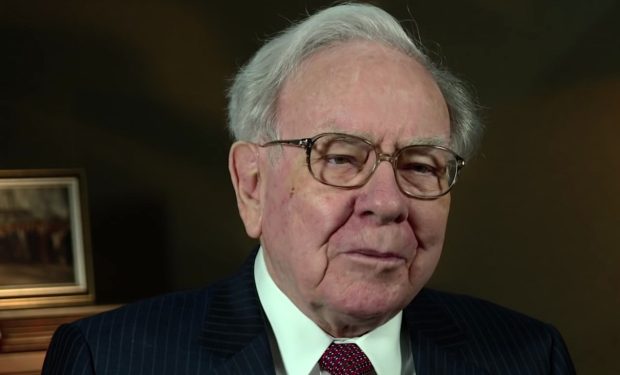Berkshire Hathaway changed its tune on Taiwan semiconductors just as a bipartisan program to benefit American chipmakers is scheduled to receive industry applications
Warren Buffett‘s Berkshire Hathaway largely reversed its November move into Taiwan Semiconductor Manufacturing Co. (TSMC). The investment behemoth sold more than 85% of its shares in TSMC after investing $4.1 billion in the chip manufacturer just three months ago.
The chip manufacturing industry has received a huge governmental boost since July, when Congress approved a rare bipartisan $280 billion bill that both President Joe Biden and GOP lawmakers supported. The bill, as the New York Times reported, was “aimed at building up America’s manufacturing and technological edge to counter China,” describing it as the “most significant government intervention in industrial policy in decades.”
Notably, Buffett’s purchase of the foreign chipmaker’s stock came after the bipartisan legislation created a shiny new runway for American chipmakers. But in September, Biden’s White House along with the U.S. Department of Commerce released its strategy outlining how the Department would handle dispersal and “implement $50 billion from the bipartisan CHIPS Act of 2022, signed by President Biden last month.”
That announcement included the news that the CHIPS for America program — which seeks “to restore U.S. leadership in semiconductor manufacturing by providing incentives and encouraging investment to expand the domestic manufacturing capacity” — would provide specific application guidance for the CHIPS for America program by early February 2023. Which is when Buffett unloaded his foreign chipmaker shares.
The bipartisan legislation is intended to dramatically alter the global chip manufacturing landscape, and its economic impact will be far-reaching. While Berkshire-Hathaway considers a multitude of criteria — not all disclosed — around its investment decisions, Buffett and company are keenly aware of the timing and impact of the bipartisan CHIPS for America program as they offload TSMC.
TSMC Primer:
Taiwan Semiconductor Manufacturing Co. (TSMC) is the world’s largest dedicated independent semiconductor foundry. It was founded in 1987 in Hsinchu Science Park, Taiwan, by Dr. Morris Chang, a former executive at Texas Instruments and General Instrument.
TSMC’s founding was a response to the growing demand for advanced semiconductor technology, particularly in the personal computer industry, which was dominated by American companies at the time. Dr. Chang saw an opportunity to establish an independent foundry that could provide the fabrication services that were necessary to develop these new technologies.
In its early years, TSMC faced significant challenges as it sought to compete with established semiconductor companies in the United States and Japan. However, TSMC’s focus on research and development, as well as its commitment to investing in state-of-the-art manufacturing technology, helped it to become a leader in the semiconductor industry.
TSMC’s breakthrough came in the mid-1990s, when it developed the first 0.5-micron process technology, which allowed it to produce chips with smaller feature sizes than its competitors. This technological advantage allowed TSMC to win business from major semiconductor companies such as Texas Instruments, Qualcomm, and Nvidia.
Since then, TSMC has continued to push the limits of semiconductor technology, developing processes with feature sizes as small as 3 nanometers. Its clients now include many of the world’s largest semiconductor companies, as well as fabless design companies such as Apple and AMD.
Today, TSMC is widely regarded as one of the most important companies in the semiconductor industry. Its innovative technology and commitment to manufacturing excellence have enabled it to become a key partner for companies that are developing the next generation of electronics products.
